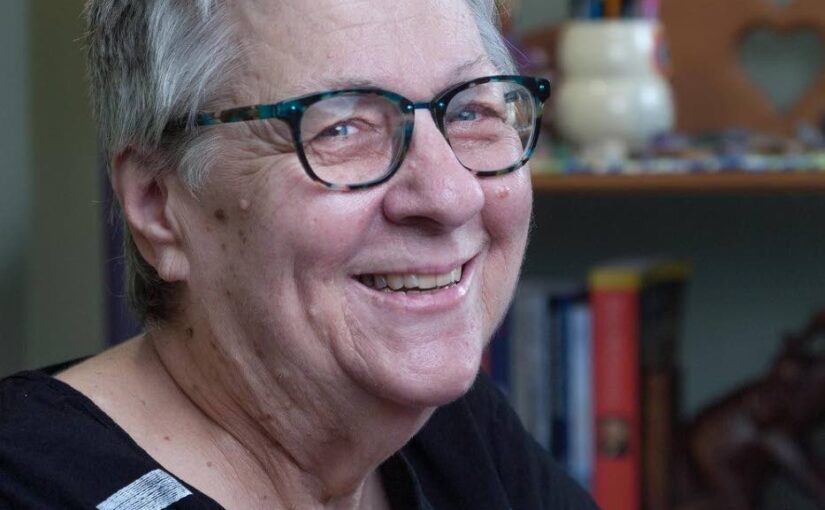BAVINA SOOKDEO “One of my mentors had said to me, 'children may not always remember what you taught but they will always remember how you made them...
Vous n'êtes pas connecté
- English
- Français
- عربي
- Español
- Deutsch
- Português
- русский язык
- Català
- Italiano
- Nederlands, Vlaams
- Norsk
- فارسی
- বাংলা
- اردو
- Azərbaycan dili
- Bahasa Indonesia
- Հայերեն
- Ελληνικά
- Bosanski jezik
- українська мова
- Íslenska
- Türkmen, Түркмен
- Türkçe
- Shqip
- Eesti keel
- magyar
- Қазақ тілі
- Kalaallisut ; kalaallit oqaasii
- Lietuvių kalba
- Latviešu valoda
- македонски јазик
- Монгол
- Bahasa Melayu ; بهاس ملايو
- ဗမာစာ
- Slovenščina
- тоҷикӣ ; toğikī ; تاجیکی
- ไทย
- O'zbek ; Ўзбек ; أۇزبېك
- Tiếng Việt
- ភាសាខ្មែរ
- རྫོང་ཁ
- Soomaaliga ; af Soomaali
Rubriques :
 Maroc - NEWSDAY.CO.TT - A la Une - 30/Sep 06:52
Maroc - NEWSDAY.CO.TT - A la Une - 30/Sep 06:52
Ultimate form of rebellion
Debbie Jacob SOMETIMES my thinking on a subject makes seismic shifts. For years I have lamented the Government’s lack of support for reading. I complain about taxes on books and not enough emphasis on reading in schools, and criticise the Government for not realising the importance of reading. I try to convince the reading public of how reading builds academic, personal and social skills we all need to become happy and productive citizens. But now I realise I might have it all wrong. Maybe the Government realises the value of reading. It knows if you build critical reading skills, you will become better informed voters and more critical citizens. You will better understand the cultural, ethnic and racial differences in this country and become more empathetic and tolerant. Perhaps the Government doesn’t encourage reading because it doesn’t want you to be wiser and more outspoken. It doesn’t want you to weaponise reading. The Government is afraid of readers. As for you, dear citizens of Trinidad and Tobago, I no longer feel you should be reading just to develop comprehension and critical thinking skills, empathy, personal and social development. You should be reading because it is a civic act of rebellion. You need to show the Government that you are smarter than it thinks. You need to read to understand how to hold everyone around you, from your boss to your political leaders, accountable for their actions. You should read because you have the right to be happy. Whenever polls about the happiest countries in the world pop up on the internet, Scandinavian or Nordic countries – Norway, Iceland, Sweden, Finland and Denmark – rank high on the list and one country often ranks first. These are cold places known for their love of reading. People in Iceland give books to each other on Christmas Eve. Iceland has one of the highest rates of books per capita (3.5 books for every 1,000 inhabitants). A university study in 2013 showed 50 per cent of the country’s residents read at least eight books per year and 93 per cent of its people read at least one book a year. The Pew Research Centre says the average number of books read by adults in the US is 12 per year, but 50 per cent of US adults can’t read a book written at an eighth-grade (Form 2) level. About 30 million adults in the US cannot read above a third-grade (Standard 3) level. What do you think that says about their comprehension and analytical skills? An internet article called Above and Beyond Therapy says that in the UK the average number of books read per year is ten. On average, women tend to read more books than men. An article by Ralph Moller published on the internet on February 21 says about 42 per cent of US college graduates never read another book after college. So much for life-long learning. Studies on reading consistently show that adults over the age of 65 tend to read more books than any other age group. They would have grown up in a time when schools stressed reading. And how many books make someone an avid reader? Reports say anywhere from 50 to over 100 books per year. Academic studies show that readers are generally happier people in life. When I taught in the Youth Training Centre (YTC), I told my teenage boys, “Happiness is the best form of revenge. If there’s one thing people can’t stand, it’s a happy and informed person.” With all the benefits we assign to reading, we rarely talk about the fact that reading has many of the same properties as meditation. It's calming and allows non-athletes to experience that magical state of flow – losing yourself in an activity. When I taught, my students complained that reading made them sleepy. “That’s because reading relaxes you.” Studies also show that readers get a better night's sleep. Imagine waking up the next day feeling happier, more confident and better informed. If that’s not a powerful form of rebellion, I don’t know what is. So again I ask, Why wouldn’t our government make every effort to encourage reading? Is it afraid of the power reading gives us to take charge of our lives? There’s a simple way for the Government to prove me wrong. Remove taxes on books, support bookstores, stress reading in schools and in the workplace. Give incentives for people to buy books – especially local ones. Create Stop, Drop and Read programmes in schools and business places. Start book clubs in workplaces and make them part of the work day. Start to visualise books as our most powerful weapons. The post Ultimate form of rebellion appeared first on Trinidad and Tobago Newsday.
Articles similaires
In an authoritarian regime it’s important to control the news — and here we go
— Is changing the Democratic Party the way to remake our Democracy? Donald Trump only got about a million more votes than he did in 2020, but Kamala...
Not like US
AUSTIN FIDO My favourite moment of the recently concluded (and seemingly interminable) US presidential campaign was the pro-Trump election-night...
Browne: ‘Business is not about academics alone’
In an effort to equip students with hands-on business skills, the Arthur Lok Jack Global School of Business held its third Secondary School Business...
Do More Foundation Empowers Nkomazi Parents To Grow Their Child’s Literacy Skills With Proudly South African Books
This month, the DO MORE FOUNDATION is shining a spotlight on the parents of Nkomazi and the important role they play in cultivating their young...
Your Kids Are Already Communist, And College Will Make It Worse – OpEd
By Mark Thorton Children in the US are raised to be communists. Most of the parents are too and don’t even know it. It doesn’t matter if you...
Labour Minister on port delays: We need dialogue, not ultimatum
Labour Minister Stephen Mc Clashie is calling for dialogue between the Port Authority of TT (PATT) and the Seamen and Waterfront Workers Trade Union...
Senator Hislop: Take Tobago autonomy ‘step by step’
GOVERNMENT senator Laurence Hislop has said the best path towards greater autonomy in Tobago is a "step-by-step" approach. Hislop was speaking in an...
There Will Be No Minsk-3; What We Need Is Real Peace – Address by the President of Ukraine
I wish you health, fellow Ukrainians! Briefly about today. We continued to work on the points of our Internal Resilience Plan. Today, two...
There Will Be No Minsk-3; What We Need Is Real Peace – Address by the President of Ukraine
I wish you health, fellow Ukrainians! Briefly about today. We continued to work on the points of our Internal Resilience Plan. Today, two...
Les derniers communiqués
-
Aucun élément







